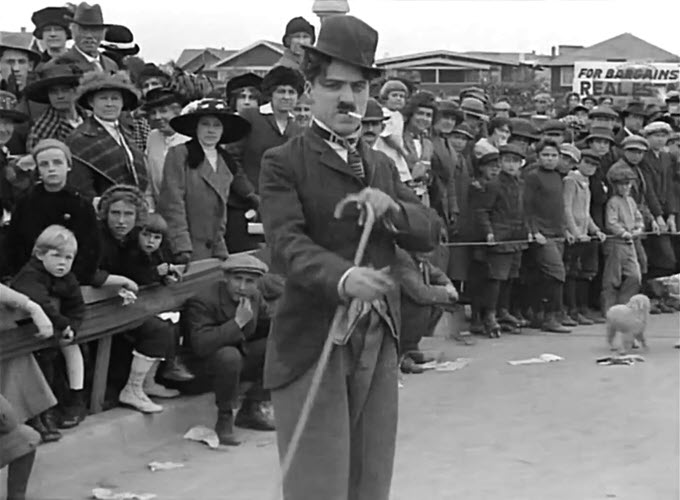Chaplin: The Tramp Who Charmed the World

Image Courtesy: Screenshot of Charlie Chaplin in Kid Auto Races at Venice ( – DVD screenshot)
Charlie Chaplin (16 April 1889 – 25 December 1977) was an English comic actor, filmmaker, and composer who rose to fame in the era of silent film. He became a worldwide icon through his screen persona.
Life and Career
Charlie Chaplin, born Charles Spencer Chaplin on 16 April 1889, in London, England, was a British actor, comedian, filmmaker, and composer who rose to international fame during the silent film era. He is widely regarded as one of the most influential figures in the history of cinema and is considered a pioneer in the art of comedy.
Chaplin’s childhood was marked by poverty and hardship. His parents, Charles Chaplin Sr. and Hannah Chaplin, were both performers, but their careers were unstable. His father was absent for most of his life, and his mother struggled with mental health issues, which led to her being institutionalized. As a result, Chaplin grew up in workhouses and experienced a difficult upbringing.
Chaplin’s first taste of the entertainment industry came when he joined a clog-dancing troupe called the Eight Lancashire Lads. He later joined a comedy group called the Fred Karno Company, where he honed his skills as a physical comedian. In 1910, he traveled to the United States with the Karno Company and eventually made his way to Hollywood.
Chaplin’s iconic character, “The Tramp,” which he developed during his time with the Karno Company, became his signature role and made him a worldwide sensation. With his trademark mustache, bowler hat, and oversized shoes, Chaplin’s portrayal of the Tramp was a perfect blend of physical comedy, pathos, and social commentary.
Chaplin’s films during the silent film era, such as “The Kid” (1921), “The Gold Rush” (1925), and “City Lights” (1931), were critical and commercial successes. He was known for his innovative storytelling techniques, masterful physical comedy, and ability to elicit deep emotions from audiences without using spoken dialogue.
In the 1930s, as the film industry transitioned to talkies, Chaplin continued to make successful films, including “Modern Times” (1936), a satirical take on the impact of industrialization on society, and “The Great Dictator” (1940), a political satire that mocked Adolf Hitler and fascism.
Chaplin’s personal life was often tabloid fodder. He was married four times and had multiple romantic relationships, including with younger women. He was also known for his leftist political views, which often got him into trouble with the U.S. government during the era of the Red Scare and McCarthyism. In 1952, he was denied re-entry into the United States after a trip to Europe, and he ultimately settled in Switzerland, where he lived until his death. He died on 25 December 1977 at an age of 88 in Corsier-sur-Vevey, Switzerland.
Award and Legacy
Charlie Chaplin’s contributions to cinema and comedy are widely recognized and celebrated. He is considered one of the greatest actors and filmmakers of all time, and his influence can be seen in the work of countless comedians and filmmakers who followed him. Chaplin also received his only competitive Oscar for his composition work, as the Limelight theme won an Academy Award for Best Original Score in 1973 following the film’s re-release. Today, his films continue to be studied and appreciated for their artistry, humor, and social commentary. On 16 April 2011, Google celebrated the 122nd Birthday of Charlie Chaplin with a doodle.
Observer Voice is the one stop site for National, International news, Sports, Editor’s Choice, Art/culture contents, Quotes and much more. We also cover historical contents. Historical contents includes World History, Indian History, and what happened today. The website also covers Entertainment across the India and World.

